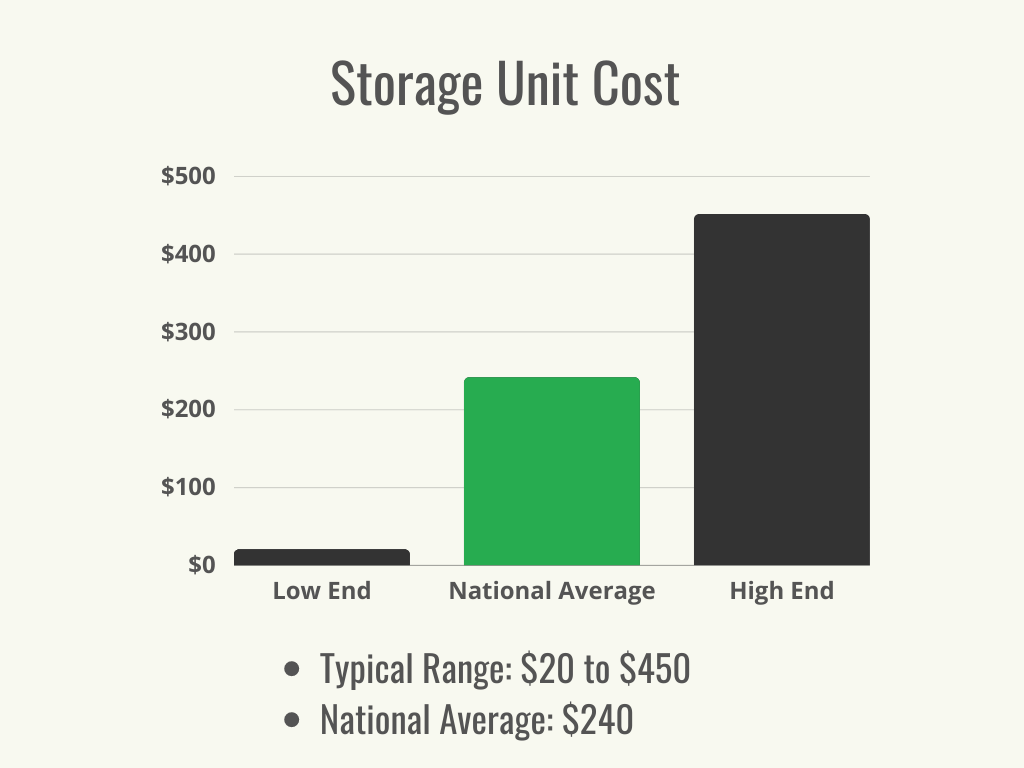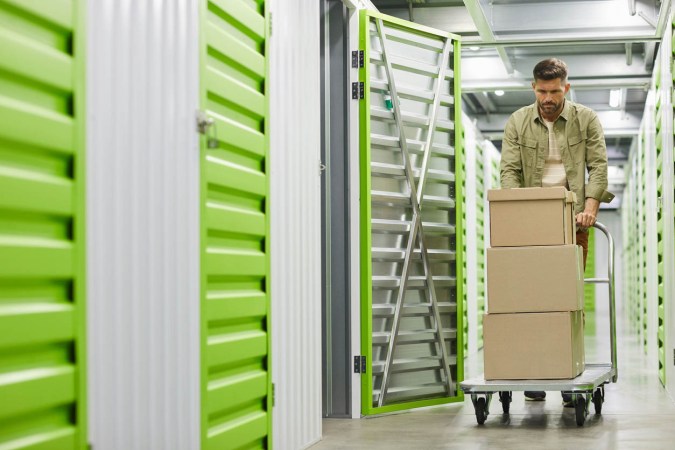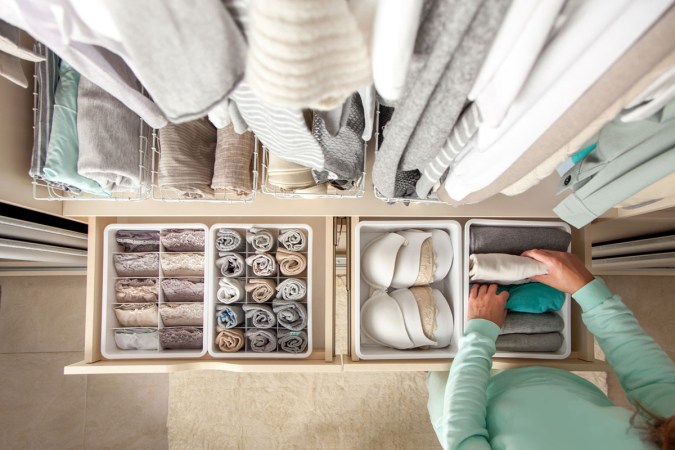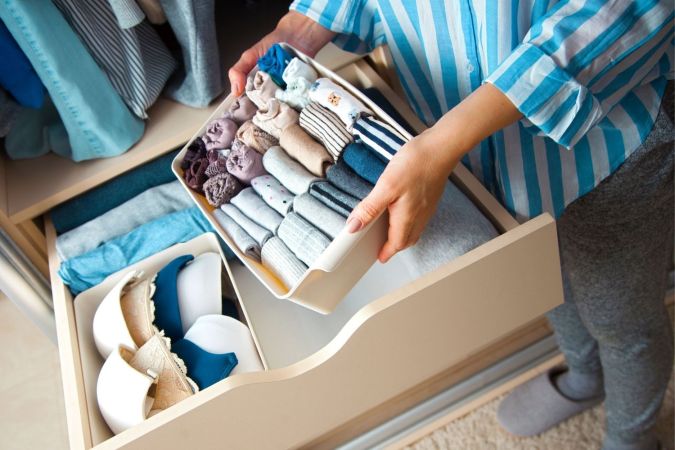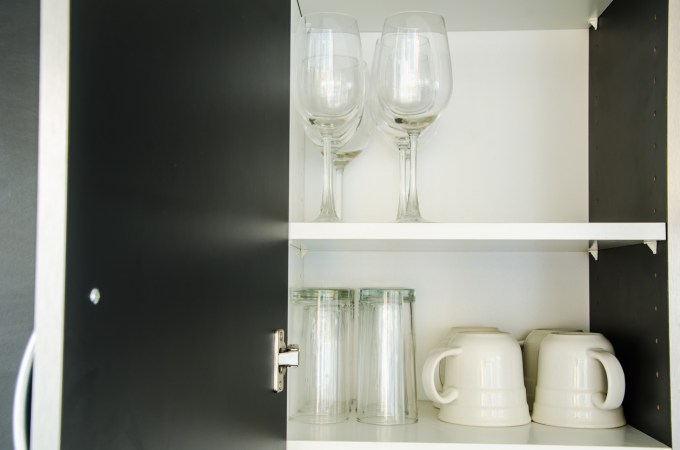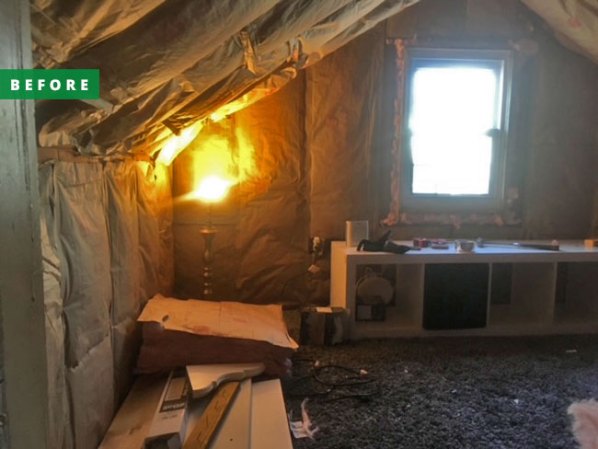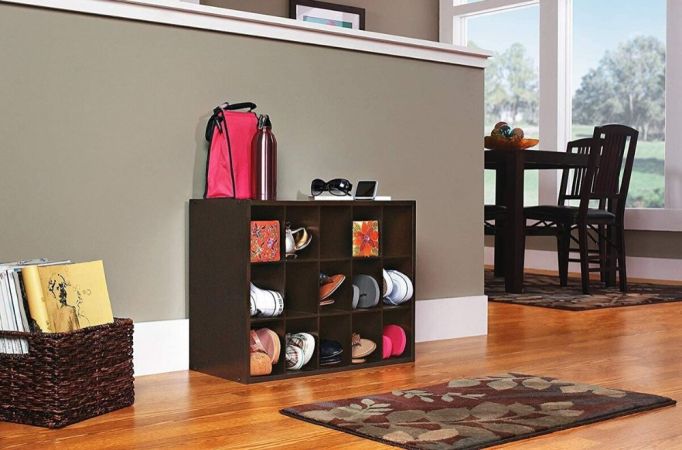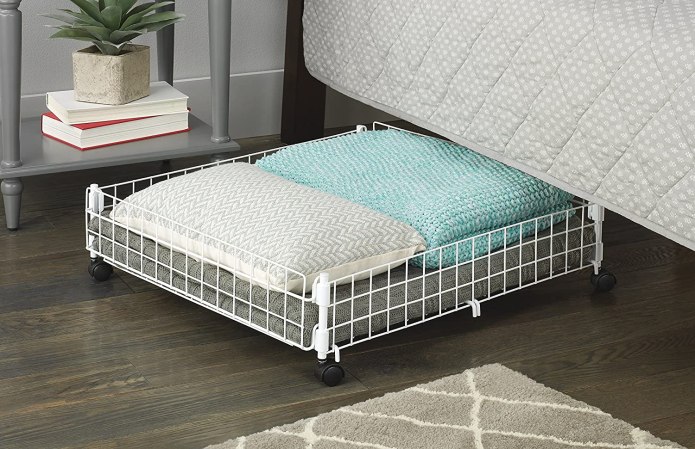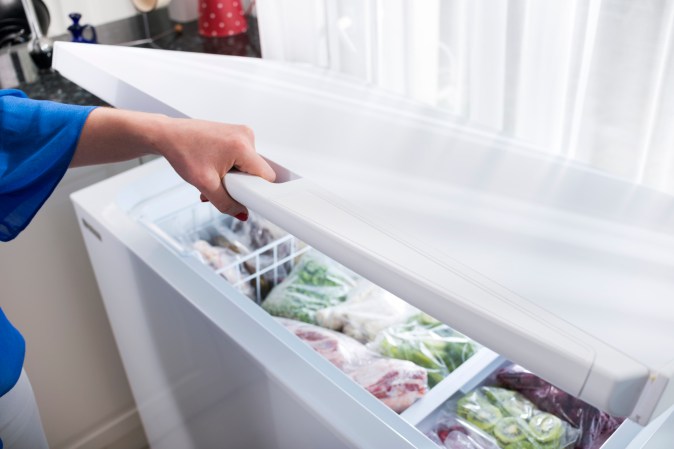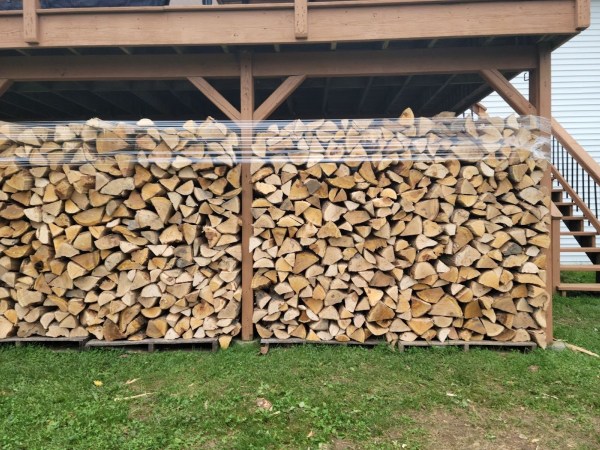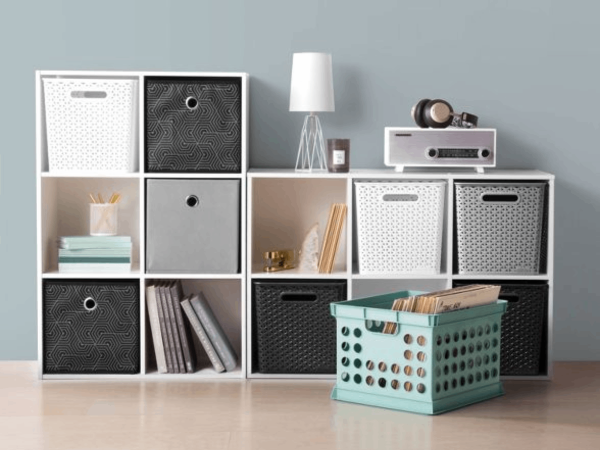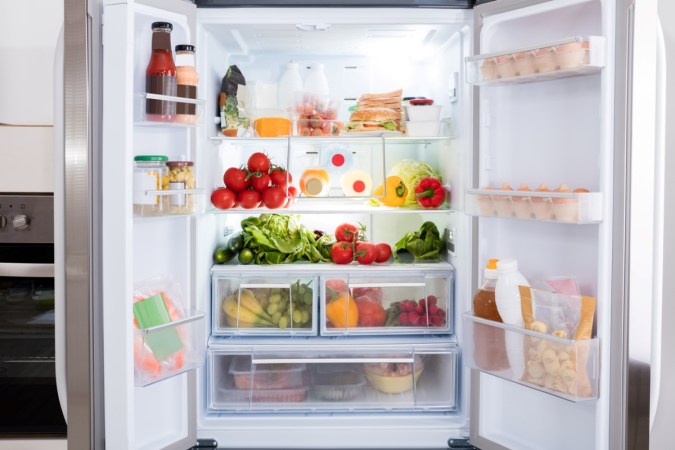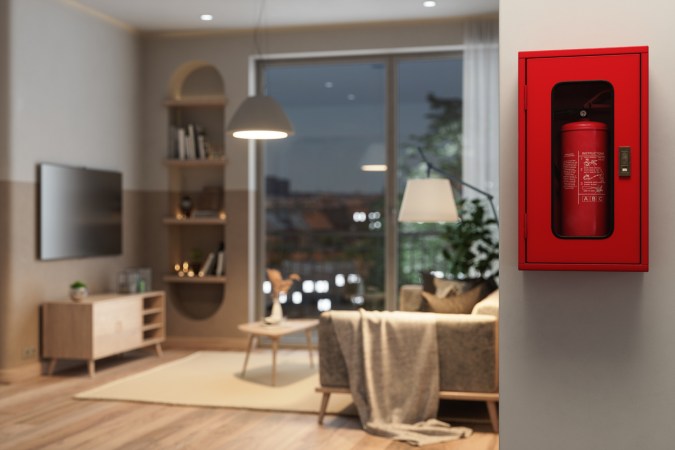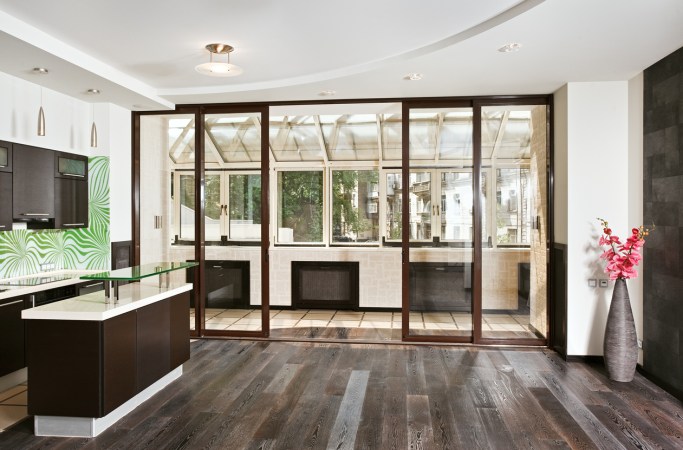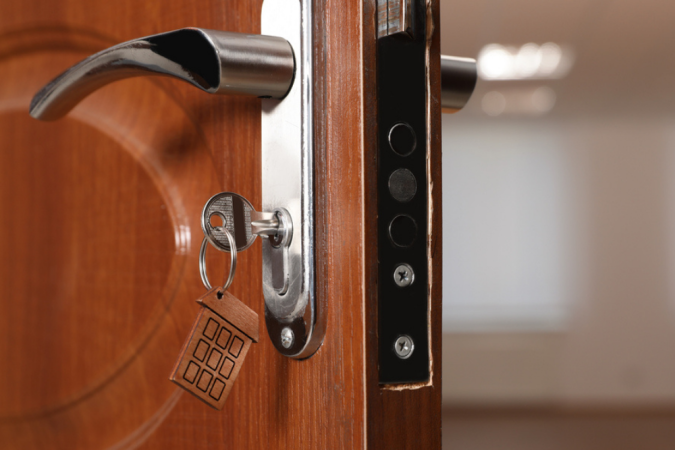We may earn revenue from the products available on this page and participate in affiliate programs. Learn More ›
Highlights
- The typical cost to rent a storage unit ranges from $20 to $450, with a national average cost of $240.
- The main factors that affect the cost of storage unit rental include unit size and accessibility, geographic location, unit purpose, seasonality and availability, rental contract length, taxes, fees, and insurance.
- It may be necessary to rent a storage unit if someone is moving, renovating or selling their home; requires a place to store a car or a family member’s personal effects; is going through a life transition; or needs a place to store business items.
If a homeowner or renter is running out of storage space in their home or needs a location to store their belongings while transitioning from one place to another, a storage unit might be the answer they need. But how much do storage units cost? According to HomeAdvisor and Angi, prices for storage units can range from $20 to $450 per month, with the national average at $240 per month. The cost for a 10-foot by 10-foot storage unit can run between $80 and $160 per month, while a storage rental for an RV or car can run from $45 to $450 per month depending on the size. If a customer needs a climate-controlled storage space, they can expect to pay an additional $20 to $50 per month. The exact price of a storage unit depends on the geographic location, the size of the unit, the unit availability, taxes and fees, and the types of items the customer needs to store. To find an accurate estimate of what they’ll pay, customers will want to search online for “storage units near me.”
Factors in Calculating Storage Unit Cost
How much is a storage unit? The exact answer will depend on several factors that affect the costs of storage units. Prices can differ from the national average due to location, the size and accessibility of the unit, the purpose of the unit, seasonality, availability, rental contract length, taxes, fees, and insurance rates.
Unit Size and Accessibility
Storage unit costs vary by the size of the space. Typically, larger storage units cost more to rent than small storage units, although larger units usually cost less per square foot. So how much does a small storage unit cost compared to other unit sizes? A small unit will cost an average of $75 per month, a medium unit will cost around $150, and a large unit can cost $300. Customers will want to determine what size storage unit they need to make sure they’re not paying for more than is necessary. Availability and demand for a specific size unit can also impact the overall price. Accessibility is another factor that affects storage unit prices. An older storage facility that has drive-up access usually costs less than a newer multilevel indoor facility. A location that has security cameras, 24-hour access, and employees that canvass the location may charge more than facilities that do not have those options.
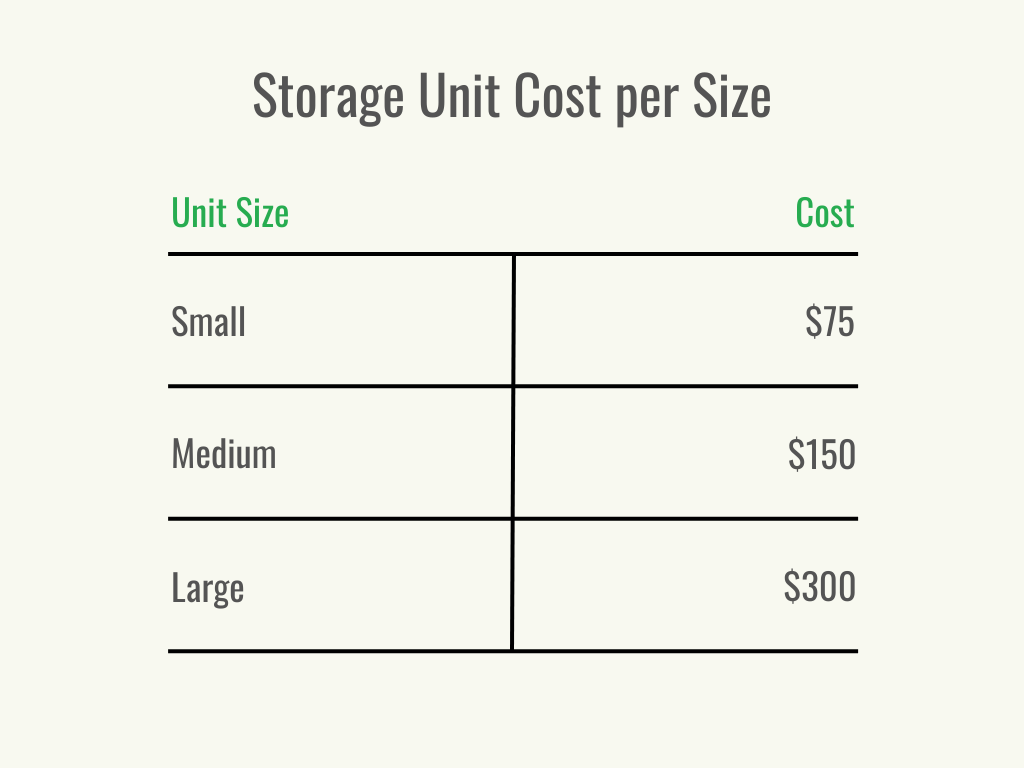
Geographic Location
Storage units in a densely populated urban area will typically cost more than storage units in a more rural location. The higher price results from more demand and less available space in cities and suburban areas. To get a good idea of how much a storage unit costs in their area, homeowners can search online for “storage unit near me” to compare prices.
Unit Purpose
While many people will use a storage unit to store furniture, boxes of books, and other housewares, others may need to store a car or an RV, or they may require a climate-controlled unit for delicate or valuable items. The cost to store a motor vehicle is different and typically more expensive than a standard storage unit, and customers can expect to pay more for a climate-controlled space.
Seasonality and Availability
The most popular time of year to buy a new house and move is from May to September. Storage units are typically more expensive to rent during those months than other times of the year because of people needing the extra room to store their belongings between moves or overflow belongings that won’t fit in a new space. Increased demand means higher prices. Customers may want to consider renting during the moving off-season to save some money. The most popular storage unit size is a 10-foot by 20-foot unit that can fit the belongings of a 2- to 3-bedroom residence. The availability and demand for this size unit can drive up the price in a specific area.
Rental Contract Length
The duration of the rental contract can affect storage unit cost. Some storage facilities will rent on a month-to-month basis, and others have a minimum rental period of a few months at a time (typically 3 or 6 months). Some facilities require payment in full at the time the customer signs the contract. Customers will want to ask all the important questions they may have regarding the storage unit before they sign.
Taxes, Fees, and Insurance
Depending on the location of the storage unit, there may be local and state taxes that are added on top of the monthly storage unit cost. Customers can expect to pay administrative fees as well. Some facilities charge a sign-up fee of around $15 to $50. Some other fees that renters may experience are late fees, locksmith fees, and cleanup fees when the unit is emptied. Storage facilities typically require insurance coverage to protect customers’ belongings, and they may ask for proof of insurance. If a customer doesn’t have homeowners or renters insurance that covers a storage unit, the facility may offer insurance that a customer can purchase and add to their monthly rental bill. These policies usually cost between $8 and $40 per month for around $10,000 in coverage.
Additional Costs and Considerations
When calculating a storage unit price range, it’s helpful for customers to know additional price factors and considerations that can increase the overall cost of the rental unit. These can include self-storage versus portable storage, full-service storage, indoor versus outdoor storage, storage unit delivery costs, whether a customer needs a climate-controlled unit, security, and car and RV storage.
Self-Storage vs. Portable Storage
For those who are in between homes and need a place to store furniture and boxes, choosing one of the best self-storage facilities may be the most practical option. Self-storage units are also useful for those who need to stash away seasonal decorations and reduce clutter or those who have a car or RV to store. For self-storage units, the renter is responsible for transporting and storing the items within the unit. Typically, self-storage units are accessible whenever the customer needs to get to their belongings. Self-storage units are less expensive than full-service storage facilities, which makes them more budget-friendly.
Portable storage units are delivered to a customer’s home for ease of access and convenience. Portable units can also be used for storage on a customer’s property or for long-distance moves. The overall price is based on how long the customer will need the unit, where it will be stored, and the distance it will travel to get to their home.
Full-Service Storage
Full-service storage companies, sometimes called valet storage or on-demand storage, will pick up the customer’s belongings and deliver them to a storage unit or warehouse. Many times, the customer can schedule the pickup or return via a smartphone app. Going through a full-service storage company is more convenient and hassle-free than a customer transporting their furniture and boxes to a storage unit on their own. Many valet storage facilities will photograph and catalog the customer’s belongings once they’re stored away. While some full-service storage companies offer competitive pricing with self-storage units, they’re typically more expensive.
Indoor vs. Outdoor Storage
Indoor storage units are located inside a building. The benefits of having an indoor storage space are the extra security and the option for a climate-controlled area. Customers will also be protected from the elements if they need to make a trip to their storage unit in inclement weather. Indoor units are typically more expensive than outdoor storage.
Outdoor storage units are often located behind a passcode-protected fence, so they are still secure. They’re convenient for car, RV, motorcycle, boat, or trailer storage since customers can simply drive into the unit and drive out when needed. Outdoor options are good for those who don’t need a climate-controlled option. Some storage facilities may offer the extra option of a block heater for an outdoor unit if needed.
Storage Unit Delivery Costs
Delivery fees for portable storage units cost an average of $200. Customers will want to keep in mind that for a portable unit, they’ll need a space for the unit as well as for the delivery vehicle to maneuver to unload the storage unit. The best moving container companies will drop the container off at the home and pick it up again at a predetermined time, giving the customer plenty of time to put their belongings inside.
Climate Control
If a customer needs a climate-controlled storage unit, they’ll want to be prepared to pay at least an additional $20 to $50 per month. The price difference for climate-controlled units depends on the size of the storage space. A climate-controlled storage unit ensures the temperature inside the unit stays below 90 degrees Fahrenheit in the summer and above 40 degrees Fahrenheit in the winter. The facility also manages the humidity level to keep it below 65 percent. Temperature and humidity control is important for customers who need to store wooden or leather furniture, artwork, electronics, instruments, and antiques. Many people who need long-term storage options for valuable belongings or live in an area that experiences extreme temperatures opt for a climate-controlled storage unit.
Security
When a customer rents a storage unit, they’ll want to make sure it is safe and secure. Customers can inquire about video monitoring, security gates and doors, in-person surveillance, and if the facility provides the lock or if the customer can supply their own. Some storage facilities may also have keypad access or individual security gates, though those offering these types of features will likely cost more. Safety is also an important consideration, so customers will want to inquire about whether the storage facility has smoke detectors and fire prevention equipment (such as sprinklers and fire extinguishers), and if so, how many.
Car and RV Storage
If a car needs to be stored for a short period of time, driving it into a storage unit may be the best solution. If a customer needs a long-term solution, a space that’s dedicated to vehicle storage might be the best bet. Prices for car storage units can range from $45 to $450 depending on the length of time the storage space is needed, the size of the storage unit, and whether the area is climate controlled. Storing an RV requires a space big enough to accommodate such a large vehicle. Fortunately, dedicated storage facilities for RVs, campers, and trailers are not difficult to find, even in more rural areas.
Storage Unit Purchase
Though not all storage facilities offer this option, it is sometimes possible to purchase a storage unit rather than renting. Outdoor units tend to be the cheapest option, around $3,000 to $4,000. Costs to purchase indoor storage units are pricier at around $15,000, and these can even run up to $45,000 for the largest sizes. While they cost more up front, those looking for long-term storage options may ultimately end up saving long term if they choose to buy rather than rent.
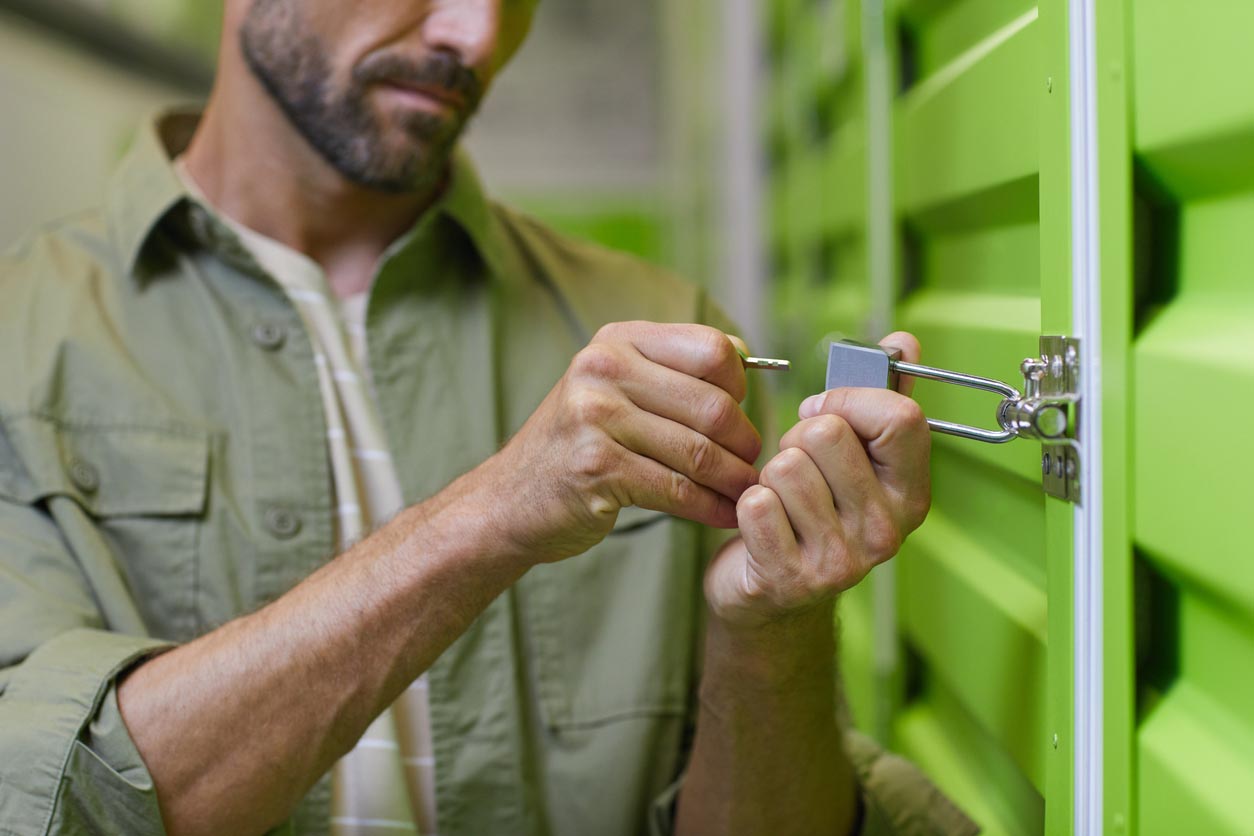
Storage Unit Cost by Type of Unit
Storage unit costs can vary depending on the availability, size, type of storage unit, the duration of the rental contract, taxes, fees, insurance, and any additional features. The types of storage units typically available are portable, self-storage, and storage in transit units.
| Unit Type | Average Cost per Month |
| Portable storage | $90 to $250 |
| Self-storage | $20 to $450 |
| Storage in transit | Varies by moving company |
Portable Storage
Portable storage units are containers that are dropped off on a customer’s property so they can fill it on their own. The unit can stay there until the customer empties it, or it can be transported to a new location. The cost to rent a portable unit ranges between $90 per month for a 7-foot container and up to $250 per month for a 20-foot container. There are extra fees to deliver the unit, pick it up, and if needed, take it to a storage facility until the customer is ready for the unit to be dropped off again.
Self-Storage
Self-storage units typically have 24-hour access. The cost of a self-storage unit depends on the size of the unit and its location. The average cost can range from $20 to as much as $450 per month. In a rural area, a small 5-foot by 5-foot unit could be as low as $20 per month, while a 10-foot by 30-foot unit in a more urban area could run around $300 per month.
Storage in Transit
Storage in transit is an option that some moving and storage companies offer. This is when all of a customer’s belongings are stored right on the moving truck or in a moving company’s warehouse. This can be beneficial for those who have an extended period of time between moving out of the old space and before they can move into their new home. Some homeowners also choose this option when renovating their home or staying in a temporary space. When using a moving company, this can be a cheaper option for a customer than renting a separate storage unit and moving all the items on their own.
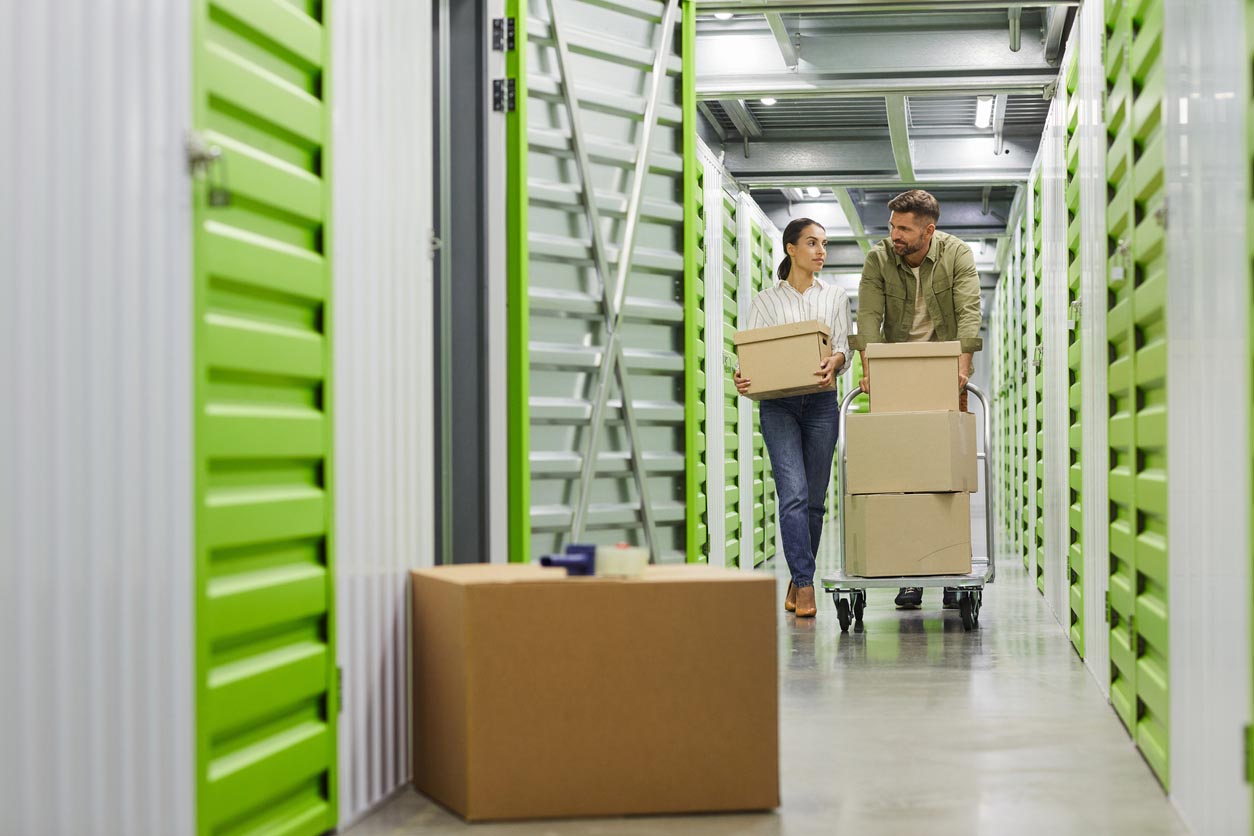
Do I need a storage unit?
There are several reasons for needing to rent a storage unit. These include the process of moving into a new home, the need to declutter, needing a space to store furniture during a remodeling project or when staging a home to put on the market, off-season vehicle storage, having a place to sort and go through a loved one’s belongings, and an area to stash dorm room furniture during the summer.
Decluttering or Downsizing
Some people like to rent a storage space so they can go through the process of decluttering and downsizing at home and need storage ideas. Having a storage unit can allow someone to have an area to store items while they decide if they want to donate or sell.
Moving
A popular reason to rent a storage unit is during the moving process. Extra storage is needed if a customer is moving into a smaller home or if the space isn’t ready by the time they need to move out. If a customer finds themselves consolidating homes or if they’re between homes, they’ll need space for sorting and storage. Another option is for customers to look into moving pods costs to see if this option would be a good fit for their needs.
Renovating
When starting a renovation project, it’s best for a homeowner to clear the area so there are no obstacles in the way. Storage units allow homeowners the option to keep their belongings safe and out of the way until the renovations are finished.
Home Selling
If a homeowner is selling their home, they’ll need to stage the interior. By removing any unneeded or personal items and stashing them in a storage unit, a seller can make their home more attractive to potential buyers.
Off-Season Car Storage
People with multiple cars or with RVs, campers, trailers, or motorcycles may not have the extra driveway or garage space to store them during the off-season. A storage unit will keep them dry and safe when they’re not being used. Car storage is also a great way to protect antique or classic cars from theft, weather, and vandalism. Some insurance policies for collectible cars even require that the vehicle is stored either in a garage or a storage unit when not being driven.
Family Personal Effects
When a loved one passes away, going through their belongings can be an overwhelming experience. If there is a rush to sell or rent their home, some family members might decide that renting a storage unit and waiting until the right moment to sort their belongings is the right move. Having a storage space during an emotional time can allow family members to feel less rushed when deciding what to sell, donate, or keep.
Life Transitions
Renting a storage unit is an excellent option for college students during the summer months when they can’t stay on campus. Recent graduates can also take advantage of a storage space while they’re applying for jobs and are in between apartments. If someone decides to start a new hobby and knows that the extra bedroom that is rarely used would make a great art studio or space to practice the guitar, a storage unit is a great idea when they need to store furniture that they’re not currently using.
Business Storage
For small-business owners, a storage unit can be a cost-effective alternative to buying office or warehouse space. Someone running their business from home may prefer not to clutter their house or garage with files that don’t need to be accessed often. Alternatively, a small landscaping or construction company may use a storage unit to store equipment and supplies when not in use.
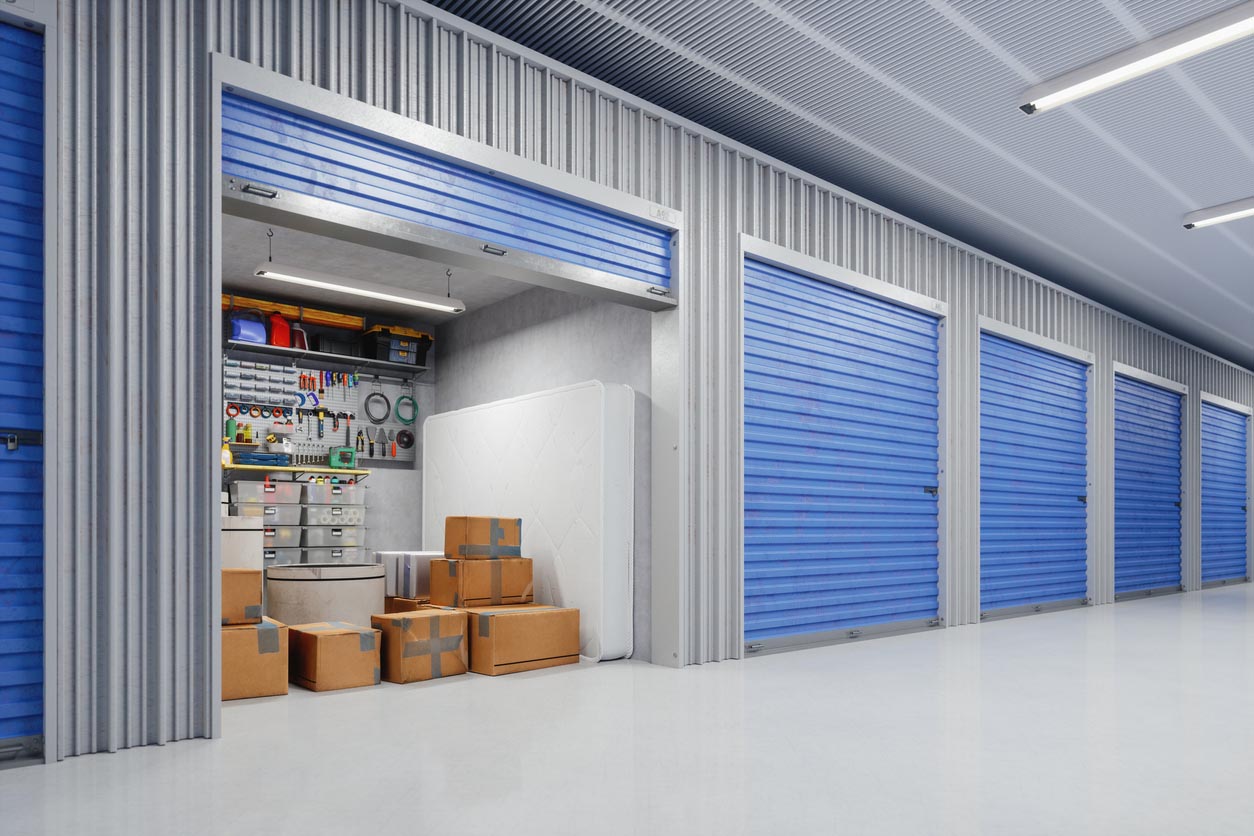
How to Save Money on Storage Unit Cost
Storage unit costs can be high, and the additional costs associated with renting a space can quickly add up. One way to save money on storage unit rentals is to rent the cheapest unit you can find, but there are other ways to save without giving up the options you want.
- Shop around. Compare storage unit prices from several companies to find the price and amenities that work the best for you and your storage needs.
- Check prices often. This process may take some time, but storage unit prices can fluctuate on a daily basis. By checking the prices of various companies every day, you may be able to find a cheaper price.
- Go online. Storage unit costs may be lower when you shop online than when you go to the facility to rent a unit. You can save approximately 20 percent by reserving a space online.
- Location. If you’re willing to rent a storage unit outside the city limits, it may be less expensive. The cost of a storage unit in a more urban area will typically be higher due to the high demand. If you don’t mind driving a short distance, you may save some money. Look up “local storage unit prices” to help you compare.
- Stack it. Storage units usually have high ceilings. If you stack your belongings, arrange furniture, stash items in drawers and cubbies, and pack carefully to utilize the space, you can save money by renting a smaller unit. Consider looking into the cost to hire movers to help you organize the unit efficiently.
- Look for discounts. Search for coupons and discounts when you search for “storage facility near me.” If you find a facility you like, always ask if it offers discounts or has any current promotions that can save you money. Some companies may also be open to price negotiation if you plan on a long-term rental.
- Don’t splurge on unnecessary features. Make sure you aren’t paying for features you don’t need—for example, a unit that is climate controlled probably won’t be necessary if you are only storing furniture or clothing.
- Declutter beforehand. Storage unit sizes affect monthly cost significantly. If you have the luxury of time, take a few days to sort your belongings and donate or sell unwanted items. You will likely find that with less stuff you can opt for a smaller and cheaper unit.
Questions to Ask About Storage Unit Rental
Asking the right questions about storage unit costs can help customers minimize miscommunication and save money. Below are some questions for customers to ask about storage unit prices before signing a contract.
- What are the access hours for the facility?
- How often can I access my storage unit?
- How often are the smoke detectors and fire alarms checked?
- What type of security system is in place?
- Are there video cameras? Do they record?
- What is the history of theft at this location?
- Do you offer climate-controlled storage?
- What is the cost of the unit after the initial move-in rate special?
- How much are fees?
- Are there special rates for a long-term contract?
- What are the late-fee policies?
- What can I store?
- Do you carry insurance?
- Will you provide references?
FAQs
Deciding on a storage unit while staying within a budget can be a bit of a challenge. The following are some frequently asked questions about storage unit costs to help guide customers in their decisions.
Q. Can I store my vehicle in a storage unit?
Typically, yes. Be sure to ask the storage facility if they allow for vehicle storage and what their guidelines are for car storage.
Q. When can I access my storage unit?
Each storage facility has its own hours and access policies. Some allow for 24-hour access, and other companies limit storage unit access to their business hours. Check with the storage facility before renting and signing a contract.
Q. Do I need to pay for maintenance of my storage unit?
Some storage companies may charge a cleanup fee when you move out of the unit. If you want to avoid this fee, be sure to take all of your belongings out of the unit and ensure it’s swept and tidy before ending your contract.
Q. How long can I rent a storage unit?
Some storage facilities will rent on a month-to-month basis, and others may require a long-term commitment. Always inquire about rental durations when you research a rental space to make sure a unit is available for as long as you need it.
Q. What happens if someone steals something from my storage unit?
Most storage facilities require that you have insurance to protect your belongings. Technically, as long as a storage facility provides security features throughout the property, they’re not responsible for theft unless it’s a result of neglect. That’s why it’s important to check your renters or homeowners insurance policy to see if it covers a storage unit. If it doesn’t, some storage companies offer insurance coverage that can be added to your monthly bill.
Q. Do I pay for extra security for my storage unit?
Increased security features such as individual video cameras or alarms for each unit may cost more than the standard security protocols such as a gate keypad, fences, and desk personnel.
Q. Can I rent a storage unit for just 1 day?
For storage facilities that don’t require a contract or a minimum rental duration, it is possible to rent a unit for a day at a time. Keep in mind that renting for such a short period may be more expensive in the long run. Always check with the rental company about rental periods. Search for “cost of a storage unit near me” to get an idea of local options and their costs.
Q. What happens if I leave my stuff in a storage unit and forget it?
If you fail to make payments on a storage unit, the facility could seize your belongings and sell them at auction. This happens if a previously agreed-upon number of payments are missed. This is usually stipulated within the rental contract. Once a grace period ends, the facility can decide that the unit and its contents have been abandoned.
Q. What should I not put in a storage unit?
Certain items that cannot be put in a storage unit include drugs; living things such as plants, pets, or people; flammable or explosive items; pet supplies; stolen items; perishable food; and hazardous materials.
Sources: Angi, HomeAdvisor, Forbes, CostOwl.com, Neighbor.com, Move.org, Sparefoot

